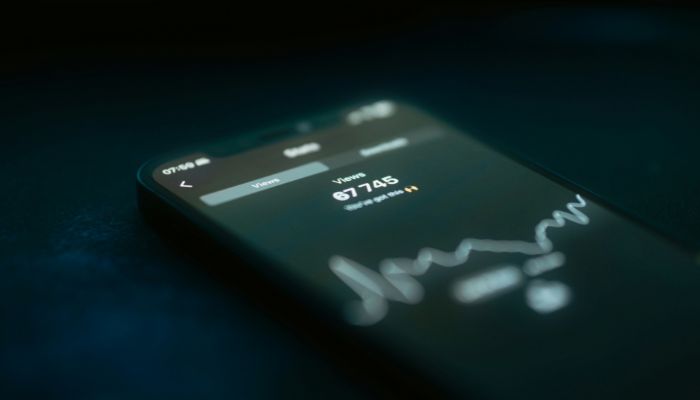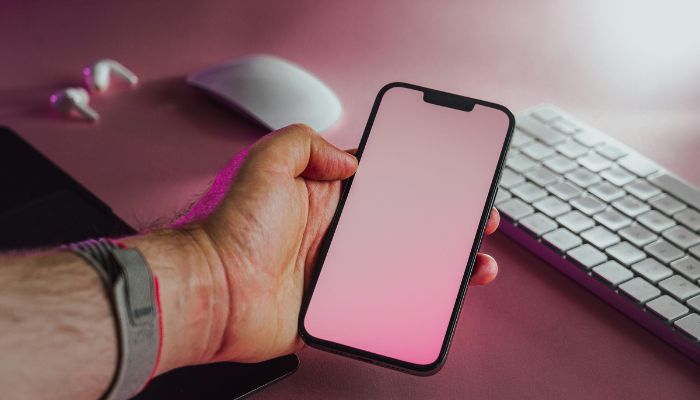
A phone number can divulge substantial information about an individual. Primarily, it can unlock personal details through databases and reverse lookup services. It further opens doors to your social media activity, revealing intricate patterns of your online behavior. This small digital identifier can also lead to real-time location tracking.
A misuse of phone numbers can unfortunately lead to identity theft, prompting unwarranted access to financial accounts. Additionally, your call and text logs could be at risk. Protection measures for your phone number are paramount, further exploration on such safety measures is crucial for digital safety.
Understanding Phone Number Privacy
While it is often overlooked, understanding phone number privacy is crucial in our increasingly digital society to safeguard personal data.
Your online presence can be significantly affected by the degree of phone number privacy you maintain. Sharing your number indiscriminately can lead to unwanted telemarketing calls and potential data breaches.
Your phone number can be a key to your personal information through a process known as reverse lookup. This is a method used to identify a person using their phone number, revealing potentially sensitive information. Given this, it is important to be mindful about who has access to your number.
Moreover, companies often store phone numbers in databases that, if not properly secured, can be susceptible to data breaches. This puts your personal information at risk, and can lead to a host of problems, including identity theft and fraud. When you need to find phone number registered owner, these databases play a crucial role in revealing the identity behind a number.
To protect your phone number and, by extension, your personal data, pay attention to privacy settings on social media and other platforms. These settings can help control who sees your number, reducing the risk of unwanted exposure. Understanding phone number privacy is an essential step in maintaining a secure online presence.
Personal Details Linked to Phone Numbers

A staggering amount of personal details can be associated with your phone number, making it a valuable target for ill-intentioned individuals and organizations. The privacy risks are considerable, with data breaches and online scams posing a significant threat to personal security.
Phone numbers often serve as a unique identifier, linking to multiple databases that could contain your full name, address, email, and more. Reverse lookup services can provide anyone with access to these details. These services, while beneficial in some cases, can also be exploited.
Cybercriminals can use them to obtain personal data, leading to spam calls, identity theft, or other online scams.
Data breaches are another risk, where compromised databases may leak your phone number alongside other personal details. This can lead to an influx of spam calls, with scammers attempting to deceive you into giving more information or money.
Phone Numbers and Social Media Platforms
Your phone number’s connection to social media platforms significantly amplifies potential privacy risks. When you link your phone number to your online presence, you inadvertently create a pathway for data mining.
Despite the added convenience of account recovery and two-factor authentication. This correlation makes your digital footprints traceable, providing a rich source of data for unscrupulous actors.
Data mining, the process of extracting valuable information from large datasets, can be used to analyze your social connections, online behavior, and personal preferences. This not only infringes on your privacy but also exposes you to targeted ads, phishing attempts, and potentially, identity theft.
Moreover, social media platforms often share user data with third-party companies. Even if you trust the platform, you have no control over how these companies handle your data. Therefore, it is essential to limit the amount of personal information, including phone numbers, shared on these platforms.
Location Tracking via Phone Numbers

Despite the convenience they offer, phone numbers can also serve as powerful tools for location tracking. GPS tracking and geolocation services, often linked to phone numbers, allow for the determination of a device’s geographical location. These advanced technologies interpret data from GPS satellites orbiting the Earth, pinpointing the precise location of a cellphone.
Network service providers also play a significant role in location tracking. They can ascertain a phone’s position based on signal strength and triangulation methods involving nearby cell towers.
A reverse phone lookup can similarly disclose a location, though usually, it’s less precise, revealing only the phone’s registered address or the area code’s general vicinity.
However, these practices raise numerous privacy concerns. The availability of such data can result in unwanted intrusion into personal life, and malicious actors may misuse it for nefarious purposes.
It’s essential to remain aware of the information your phone number can divulge, including your location, and take steps to safeguard your privacy. In our digitally connected world, the balance between convenience and privacy is a crucial consideration.
Potential for Identity Theft
Beyond location tracking, an even more alarming risk associated with phone numbers is the potential for identity theft. This type of theft often leads to significant monetary loss, with credit card fraud as a prime example. Fraudsters can use your phone number to trick banks into believing they are you, enabling unauthorized access to your accounts.
In the digital era, online scams are frequently encountered. Cybercriminals can use your phone number in data breaches, obtaining sensitive information about you. They can then use this data to impersonate you, applying for credit or services in your name. This is one of the key impersonation risks associated with phone numbers.
Further, data breaches can expose your phone number to hackers who can use it for unauthorized access to your personal and financial accounts. They can change your account passwords, locking you out, and causing significant distress.
Call and Text Log Accessibility

Another privacy concern linked to phone numbers is the accessibility of call and text logs. With your phone number, a person could potentially gain access to your call history and text messages. This is made possible through various methods such as hacking or by using caller identification technology which can reveal private data.
Spam calls are another issue. Scammers can use your phone number to make it appear as if they are a legitimate company or even an emergency contact, tricking you into revealing sensitive information. They can also use phone number verification systems to confirm that a number is active and valid, increasing the chances of you receiving more spam calls. Phone number verification and background check processes can help prevent such scams by confirming the authenticity of the caller’s identity before any information is exchanged.
Data security is paramount in protecting your call and text logs from unauthorized access. It’s crucial to ensure your device is secure, regularly updating your phone’s software and using strong, unique passwords.
Also, be vigilant when giving out your number, especially online, to minimize the risk of it falling into the wrong hands. Ultimately, your phone number acts as a gateway to a wealth of personal information that can be exploited if not properly protected.
Protecting Your Phone Number Information
In light of these risks, it is essential to implement measures that protect your phone number information from unauthorized access and misuse.
The first line of defense in protecting your number is the Caller ID feature. This feature allows you to identify who is calling, thus helping you filter unwanted telemarketing calls.
To protect your number from being included in phone number databases and used for spam messages or malicious activities. Be cautious when sharing your phone number online or with unfamiliar organizations. Opt for communication methods that don’t require your phone number, such as email or social media.
Furthermore, consider subscribing to a service that blocks unwanted calls. Many telecom service providers offer this feature, which can help reduce the number of telemarketing calls and spam messages you receive.
Lastly, be aware of phone number spoofing, a common tactic used by scammers. In this scam, the fraudster displays a fake number on your Caller ID to trick you into thinking they are someone else. Never share personal information over the phone unless you initiated the call and trust the recipient.
Conclusion
A phone number carries significant personal information, including connection to personal details, social media platforms, location, identity, and communication logs. The potential risks associated with this data warrant effective protective measures.
It is crucial for individuals to remain informed about these risks and engage in ongoing efforts to safeguard their personal information associated with their phone number.
FAQs
Can someone track my location with just my phone number?
Yes, it is possible for someone to track your location using just your phone number, though it usually requires specialized tools or cooperation from your mobile service provider. Law enforcement agencies and hackers with advanced technology can pinpoint your location using GPS data, cell tower signals, or certain apps that have access to location services. Additionally, some online services may reveal your general location based on publicly available information tied to your phone number.
What should I do if I suspect my phone number has been compromised?
If you believe your phone number has been compromised, it’s important to act quickly. First, contact your mobile service provider to secure your account and check for any unauthorized changes. Next, enable two-factor authentication (2FA) on all your accounts to add an extra layer of security, preferably using an authentication app rather than SMS. Monitor your bank accounts, email, and other sensitive accounts for any unusual activity. In severe cases, consider changing your phone number and informing your trusted contacts about the change.